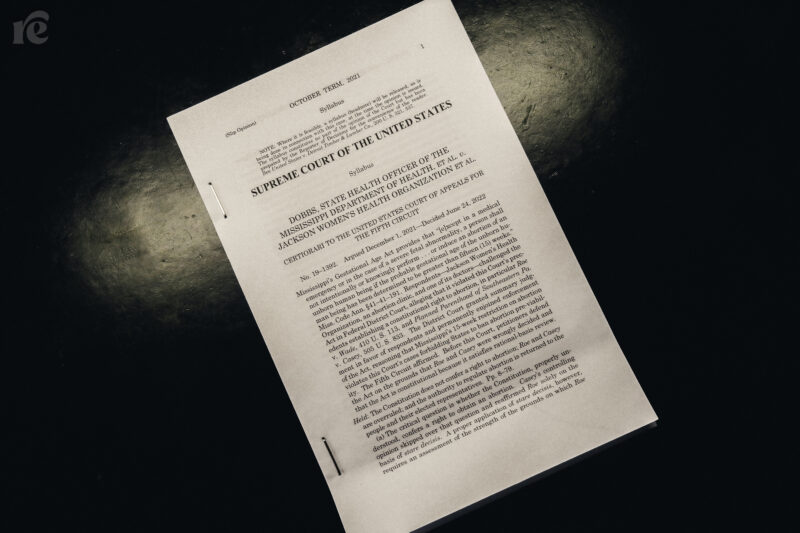Editor’s Note: One Year After ‘Dobbs,’ Lawlessness Reigns From the Courts
It is open season on any constitutional precedent the conservative Supreme Court justices disagree with.

For more, check out our special issue.
It is fair to say that the decision in Dobbs v. Jackson Women’s Health Organization almost a year ago has affected more than abortion access. In reversing Roe v. Wade—basically on a whim and because they could—the conservative justices on the Supreme Court sent a clear signal to the army of federal judges installed by Republicans during the Trump era: It is open season on any precedent they disagree with.
And boy, did those lower court judges heed the call.
When it comes to dismantling the rule of law, it’s game on thanks to the Dobbs decision, and no precedent is safe with the conservatives on the Roberts Court. It’s a last-chance power grab to try cementing conservative rule for generations to come—democracy be damned.
The lawlessness that was unleashed last June 24 is readily apparent given the utter chaos surrounding abortion rights and access in this country. In addition to the campaign to pull mifepristone from the market via political lawsuits, there is the dramatic rise in violent incidents and threats against abortion providers and patients.
The case against Dr. Caitlin Bernard is a perfect snapshot of this climate. Last July, the Indiana abortion provider spoke with an Indianapolis Star reporter about providing an abortion to a 10-year-old rape victim. The girl had traveled from Ohio for the abortion after the state’s “trigger law” banning abortion at six weeks went into effect. As a result of that interview, the Indiana Attorney General’s Office accused Bernard of violating federal and state patient privacy laws. During her hearing, medical experts disagreed as to whether she violated patient confidentiality, and the Indiana medical board eventually fined and reprimanded her.
The message was clear: Speak out about the harms Dobbs has unleashed, and you will be punished.
What, if any, limit will there be to the federal judiciary’s lawlessness? We’re still waiting for the end of a current Supreme Court term that could fundamentally rewrite First Amendment free speech law to allow evangelical business owners to avoid complying with civil rights laws. Then there’s the possibility the Court will also rewrite precedent to find both the Indian Child Welfare Act and race-based admissions policies to be unconstitutional. And sometime this summer, the Fifth Circuit Court of Appeals could rule that mifepristone was rushed to market over 20 years ago and is unsafe despite all evidence to the contrary.
Despite the lawlessness, there’s hope. Public confidence in the Supreme Court is the lowest it has been in decades. That lack of confidence only strengthens the case for wide-scale court reform, a policy issue that must be a key part of any Democratic policy agenda moving into the 2024 elections.
We also know that abortion is a winning issue for Democrats and progressives more than ever, a fact that speaks to the inherently undemocratic nature of abortion bans. And finally, there’s the truth that after Dobbs, advocates are intent on building something better than Roe, and we have every reason to believe they can.
